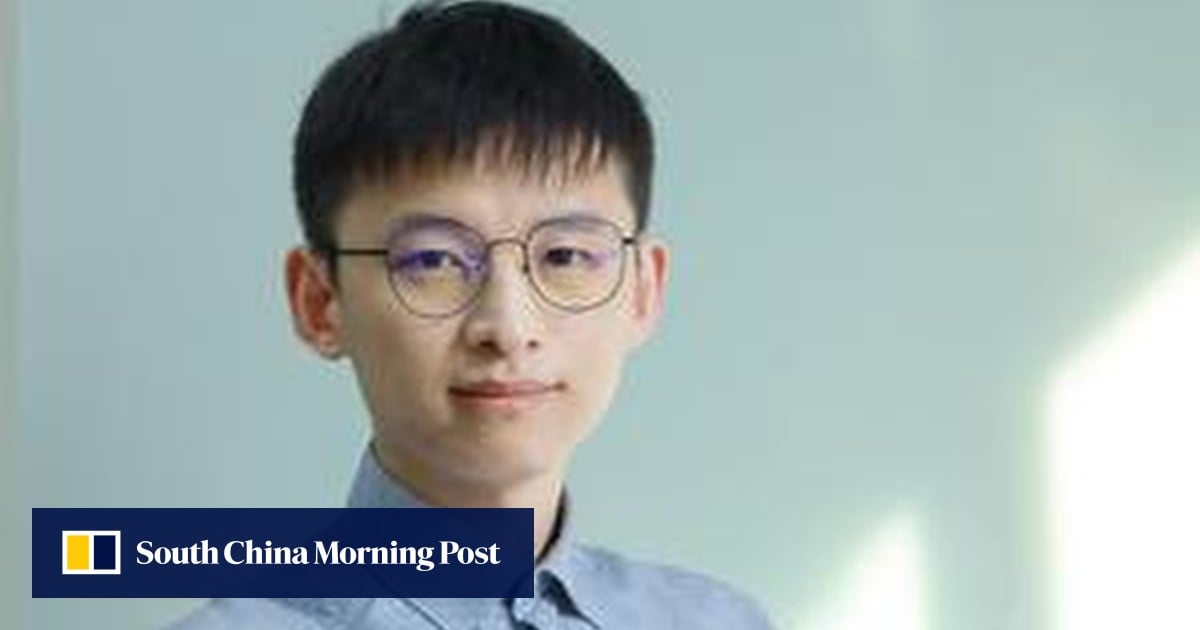Over the past three years, he has been promoted to the rank of professor, received significant funding, and his academic work is now internationally recognized and honored.
Although it is an isolated case, his career to some extent reflects China's efforts to attract and support outstanding overseas talent in an effort to become more self-reliant in science and technology.
Hao began his undergraduate studies at USTC University in Hefei, Anhui Province, in 2008 before heading to the United States in 2012, where he earned master's and doctoral degrees from Johns Hopkins University, graduating in 2016.
He then spent nearly three years at the Université Claude Bernard Lyon 1 in France and 15 months at Rutgers University in the United States.
It is not an easy life as postdoctoral researchers abroad face pressures such as visa renewal and uncertain expectations. “Such situations are fleeting, offering little in the way of financial stability or certainty for the future,” said a commentary published in Science in 2022.
Tenure in academia is becoming increasingly difficult to achieve, as the number of positions dwindles. According to a Nature survey conducted in late 2020, postdocs who cannot find a permanent position often end up taking another postdoc position.
Wu Jun, an associate professor at the University of Texas Southwestern Medical Center, said the postdoctoral position in the United States is temporary; Annual contract renewals were not a problem, but life was stressful with the smaller pay cheques.
Renewal of the US-China scientific agreement will likely be delayed again
Renewal of the US-China scientific agreement will likely be delayed again
Postdoctoral positions usually serve as a stepping stone between student experience and full-time work. But according to Wu, to become an independent principal investigator, some may choose to stay in that position longer, say four to five years, to publish more articles in top journals.
But not all postdoctoral careers have to last that long. Feng Yu, a recently appointed assistant professor at Shanghai Jiao Tong University who returned from the United States this year, did just over six months of postdoctoral training there.
“China's huge investment in basic science allows postdoctoral students to have a positive view of their future career prospects if they are willing to return to work in China,” said one astronomer in the Nature survey.
An increasing number of young scientists like Hao and Feng are choosing to seek work in their home country.
“There is not much difference between the research environment in China and that of Western countries, and the pressure on returnees to apply for grants is relatively lower than abroad,” Feng said.
After his return to China, Hao's academic career seemed to take off. In 2021, he was selected for the High-Level Overseas Talents Program of Anhui Province and the Young Talents Program of the Chinese Academy of Sciences.
In 2023, he was selected for the Changjiang Scholars Program, the highest academic award given to an individual in higher education by the Chinese Ministry of Education. Hao is now in charge of a major national research project worth 4 million yuan (555,000 US dollars) for the Ministry of Science and Technology.
He was a special researcher when he joined USTC. One of the scholars at the institute said that employees were evaluated during their six-year contracts, and only high performers received permanent faculty positions. In February, after just three years, Howe was promoted to professor.
This is a surprisingly rapid rise, according to Feng. After about three years or so of postdoctoral research abroad, it takes about another five to six years to get on the tenure track and become an associate professor, he said. This period is usually shorter if returning to China, but promotion to professor within three years is unusual, especially at a prestigious university.
Hao's rapid rise may have something to do with his areas of research, which include nutrient cycling on the early Earth, the origin of life, and the habitability of extraterrestrial oceans, topics that are a priority for China.
“Exploring the habitability of objects in the solar system and exoplanets and searching for extraterrestrial life has become one of the five major scientific topics of the future development of space science in China,” a report by China's official Xinhua news agency in April said.
A hidden ocean discovered by Chinese and European scientists in Saturn's smallest moons
A hidden ocean discovered by Chinese and European scientists in Saturn's smallest moons
Howe's newest medal, the Clark Medal, is named after Frank Wigglesworth Clark, the founding father of geochemistry.
The Geochemical Society website said Howe was honored “for his work in quantifying the geochemical conditions and processes of the Earth and early planets.”
“In particular, he developed models for late archaeological weathering, river water chemistry, and phosphorus availability on the early Earth and the moon Enceladus. [a moon of Saturn]”, read the quote.
Howe declined to be interviewed for this article.

“Extreme travel lover. Bacon fanatic. Troublemaker. Introvert. Passionate music fanatic.”







More Stories
Ryan Gosling has a quibble about a certain scene in La La Land
Some NASA satellites will soon stop sending data to Earth
Hugh Jackman and Jodie are coming to star in Darker Robin Hood